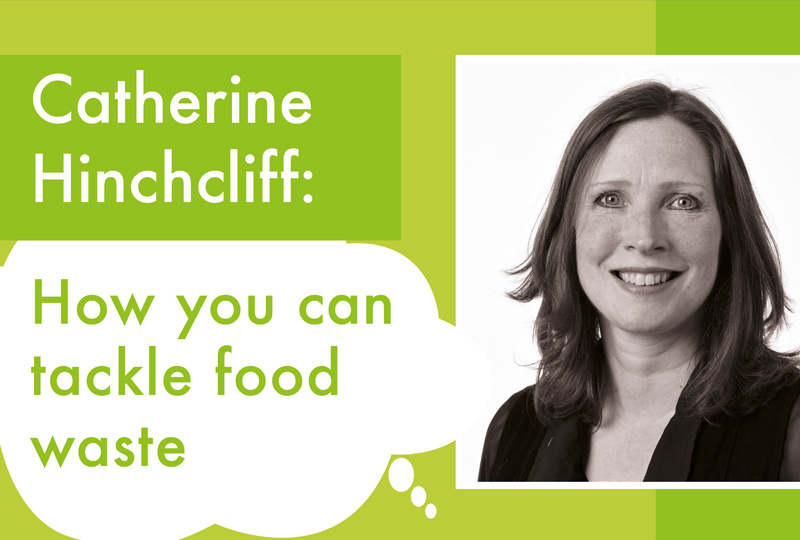The clock is ticking, and we’ve got a real challenge on our hands if we are going to meet the UK’s emissions target of “net zero” greenhouse gases by 2050.
But what does food waste have to do with us meeting this target?
It’s not widely known that food waste is a major contributor to climate change. Food that gets into the wrong waste streams and ends up decomposing in landfill sites releases methane, a greenhouse gas which is up to 84 times more potent than carbon dioxide twenty years after it is released into the atmosphere.
Here are a few facts to put it into perspective…
- across the globe, food loss and waste account for four times more greenhouse gas emissions than aviation[1]
- if food waste was a country, it would be the world’s third-largest generator of emissions, next to China and the United States
- around one third of all the food produced in the world is lost or wasted
In the UK, the food and drink sector produces more than 10.2 million tonnes of food waste annually (post-farm-gate), which is around 20% of our overall emissions![2]
So, what can we do to help?
Well, household waste accounts for around 70% of total food waste in the UK which includes food intended to be eaten (around 2/3rds) as well as inedible parts e.g. bones and egg shells.[2] This costs the average household around £500 a year, and there’s a lot we can do at home to make a difference here. Another 10% can be attributed to hospitality and foodservice, and another 18% to manufacturing. These sectors have a crucial role to play and the commitments and actions we take as businesses are a vital element in the mix.
5 things a business can do to play their part in reducing food waste
1. Redistribute surplus food
By finding a way of redistributing surplus food, through local community schemes and charities such as Fareshare and City Harvest, foodservice and hospitality businesses can really reduce the amount of food waste. At the moment 700,000 tonnes is redistributed by manufacturers, retail, hospitality and foodservice in the UK.
2. Educate your employees
More than 3.2 million people are employed in our industry. Encouraging them with practical guidance on how to cut down on food waste will make a real difference.
3. Set targets and make commitments
On the 13th June, following a call from Government urging businesses to ‘step up the plate’, more than 100 food, retail, foodservice and hospitality businesses, including Bidfood, signed a pledge[3] committing to help halve food waste by 2030, and to raising public awareness of the issue. If we all work to the same targets, it will be a lot easier to achieve the level of change we need to.
4. Measure your progress
We can’t manage what we don’t measure! It’s vital that we not only measure performance in each of our businesses, but we also collaborate and share information to drive progress across the industry. Understanding the value and quantity of what is thrown away can lead to more productive business models.
WRAP have really useful resources that help businesses measure and report consistently. If we all adopt common approaches to measuring waste then we will be able to come together and report on our commitments as an industry.
5. Use everything!
Reduce the amount of food in the bin through more efficient operations and careful menu planning. Make use of cut-offs which not only reduces food waste but means you have more to sell and this can further enhance margin.
WRAP’s food waste reduction campaign, Guardians of Grub, has loads of fantastic resources to use.
What are we doing?
At Bidfood we supply more than 45,000 caterers across the country, and we take our commitments to the environment, and our pledges very seriously. Equally we recognise that food waste isn’t an issue we can solve on our own, we’ll achieve much more if we engage across the supply chain and share best practice, consistent messages and measures, and our progress. Working together is the only way our industry can achieve real progress, and it is imperative that we do, because 2050 will almost certainly come around before we know it!
[1] Recent figures reported by the Food and Agriculture Organization of the United Nations (FAO)
[2] WRAP Report on UK progress against Courtauld 2025 targets and UN Sustainable Development Goal 12.3



